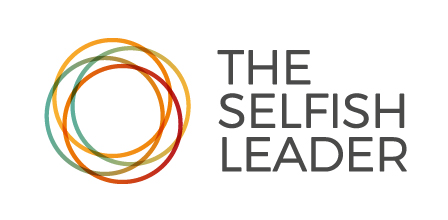For many years, I worked in environments where hardly anyone talked about how they were feeling. Nor would we talk about any feelings or emotions we had witnessed in others, except in vague, hyper-rational terms.
These were workplaces where the rational mind was favoured above all else. Meetings and conversations were conducted in a sterile tone with dry, technical language, as if that somehow made us more professional and decisive.
We operated under a collective delusion that all decisions and actions were the result of clear pragmatic thought. Emotions were kept locked down and away from the clean simplicity of logic.
This of course was a complete fallacy. Emotions were at play everywhere. Keeping them out of sight and pretending they didn’t exist was like ignoring a loose stone in our shoes – it would keep rattling around, causing pain and discomfort, with others, and often the wearer of the shoe too, oblivious to the effect.
Emotions are our internal and visible responses to subjective experience. Take a dog running into a room. This might be an exciting thing for one person, for another it might be terrifying and for another still it might trigger a range of childhood memories that bring an array of emotions. What we could actually see and interpret with any accuracy in each of these people, is another matter altogether.
And yet it is this recognition and exploration of our emotions that helps us make sense of who we are in any given moment and what is going on.
There are very real and practical fears around this. For instance, will I be able to witness and hold the anxieties of others? What if I don’t say or do the right thing? How will others respond if I show how I’m feeling? How might I be perceived?
To express and receive emotions in a workplace requires some fundamental foundations: emotional literacy at an individual level, a sense of safety in sharing or showing emotions, the ability for those receiving or witnessing emotions to hold them without anxiety. All of these require a degree of self-awareness, security and dexterity – in other words, enough people who have done some work on themselves.
What happens in workplaces that can’t contain or allow expression of emotion? Well, take a look around you. The chances are, you’re in a workplace where a lot is being left unsaid and bottled up on the surface, whilst wreaking havoc from beneath the surface. The emotions that can’t be safely expressed show up in other ways – unreasonable and disproportionate behaviours, projection on to others, bullying and so on.
When I think back over almost two decades of working in all sorts of organisations, it occurs to me how many people I worked with who were going through deeply challenging times but not feeling able to express this at work. People going through divorces and breakups. People caring for sick parents or family. People worried about their financial situation. Women going through menopause. Men struggling with fatherhood. Parents who had lost children. And people simply having a bad day because they’d had a row with their partner or had some bad news.
The flip side was also true. I witnessed many people go through happy and profoundly positive life events and barely mark them at work, apart from some cakes and sweets for births, birthdays and weddings, usually sparking the same question throughout the day: “Who brought these in?”. It often felt like any sort of authentic emotion was a distraction from the real business of work.
To look back now and think about all that was left unsaid feels sad and inhumane in a way. All those missed opportunities for connection and support, all those moments where patience and a deeper understanding could have made work so much simpler and healthier, all the problems and suffering that could have been avoided – all these small acts that add up to a culture where people are bringing realness and humanity to their work.
I know well some of the resistance to the antithesis of what is described here. What if people are always expressing their emotions? What if we end up with some navel-gazing, pseudo-therapy group? How will we get anything done if people are always talking about how they’re feeling?
This isn’t a call for an environment of constant oversharing where everyone must reveal their inner emotional states or share the latest news from their private lives. Instead, if you accept the well-founded psychological principles that emotions are a constant part of human experience including decision-making, interpersonal relationships and group dynamics, why wouldn’t you want to create an environment where they can be expressed and understood?
Why wouldn’t you want to create workplace cultures where people can be human and flawed, environments that actually allow people to process and understand what they’re feeling, and have a much deeper and intimate understanding of themselves and others? Imagine how productive and powerful that place could be.
If that sounds like a fantasy, consider this: if you were creating your own organisation from scratch, would you design a place where you could express yourself as much as possible?





